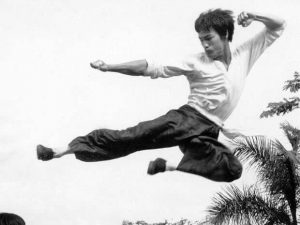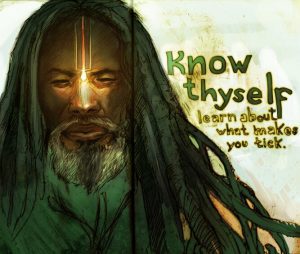Originally posted 2011-05-07 23:30:04.
If you know me, you know that the misery I experienced in my life for 50 years drove me to many modalities of relief, including affirmations.
Affirmations don’t work for me. Never did and never will.
Why? Because affirmations are spoken from the mind: and the mind says so many things, a nice word here and there won’t make a difference. Just watch how much difference and how long a pat on the back does to you: not much, correct?
Life started to change when I learned different ways of speaking. I learned that there is descriptive language, and that includes the affirmations: the ordinary way of speaking of most people.
Then there are the active ways of speaking:
requests, promises, and declarations. This way of speaking does not come from the mind: it comes from your higher way of being: your vertical plane, your vertical self.
This kind of speaking creates a context that is inescapable.
Of course, this doesn’t mean that people won’t use request or promise sounding sentences, that come from the mind, a casual tool of babbling. They may even seem to declare something, but the power is missing.
I measure the power of your word in the Starting Point Measurements
The power of MY word is 70%… But even with that much power you need to know that what you say matters. If the mind says: ‘you are lying’, then it doesn’t matter how much power your word has… does it?
Any speaking that comes from the mind is mere chatter, and any speaking that comes from the Self is a command.
So then why do negative statements seem to have disastrous consequences: what the statement says seems to come true? Because those statements, when spoken in the absence of a commitment, the absence of a higher context, are the true description of where the speaker’s world is heading.
I often say: this won’t work… this is going to fail… but my actions are not consistent with those ‘affirmations’, they are consistent with making it work.
Your most important job, if you want your word to have power, is to learn to connect to your higher self (not god! not Jesus! but your own higher self), and speak from there.
Until then you are just littering the world with your affirmations.
‘What changes your focus: changes your faith. What changes your faith changes your outcome.’ ~ Jesse Duplantis
Let me start by saying that everything you say is some kind of affirmation – either positive or negative. When you complain to your friends, ‘nothing ever goes right for me,’ you are affirming to the world and the universe that nothing should go right in your life.
It’s true, you know. You are where you are today because of your beliefs, attitudes and words.
What you say today becomes your reality tomorrow. What you believe about yourself and your situation creates and maintains your world.
You may not like where you are right now. You may not think you deserve all the hassles, stress and problems. And you are right. But you are the only one who can change your life with affirmations.
It was a revelation to me that my lack of money, bad attitude and poor relationships were my own fault! It was life-changing to learn that I could change my circumstances by changing my words.
Over the years, I have learned to say certain things – affirmations – to cancel negatives and attract positive results. Here are six affirmations that changed my life.
1. ‘I will not be defeated and I will not quit.’ It is so easy to throw up your hands and say, ‘I tried.’ But ‘try’ is never enough. To win in any situation, you have to be prepared to stay with it until you do win! It’s a philosophy that applies to everything. Michael Jordan is perhaps the greatest basketball player ever. But he freely admits that he has lost more than 300 games and missed over 9,000 shots. But he never quit. Whatever you want, whatever you need to accomplish, don’t let your circumstances win. Don’t quit.
2. ‘I can do all things through Christ who strengthens me.’ Yes, it’s a Bible verse. But I use it all the time – when I’m tired and just want to give up (see #1!), when I’m faced with a problem that I don’t know how to solve, when I need physical strength to just get through the day. Sometimes I partner it with ‘I rest in God’s energy,’ drawing strength and resolve from the Eternal source of all energy and ability.
3. ‘I have the mind of Christ.’ The power here taps into Divine wisdom to solve seemingly unsolvable problems. God has answers to every situation. Affirming that connects your spirit with His wisdom. Patience allows Spirit to work on your behalf to bring the answers or change the circumstances to bring the solution you seek.
4. ‘I am rooted and grounded in Love.’
This one is particularly effective when I’m NOT feeling very loving. When someone interrupts ‘my’ routine, wants something from me that I don’t really want to do, or when I’m feeling selfish, I remind myself of my higher calling. I am rooted and grounded in love. I can set aside my wants and focus on the other person. God will take care of me. Use that as an affirmation, coupled with appropriate action to line yourself up for greater blessing.
5. ‘There is nothing lost in God’s world.’ Use this one where you are looking for lost keys, glasses or any misplaced item. It may take some time, but if you will let this work, a thought will pop into your mind to look… somewhere. And you will usually find exactly what you are looking for.
6. ‘God loves me and has a good plan for my life.’ Use this all the time, but especially when circumstances seem aligned against you. This affirmation helps to line up your thinking with the divine plan of blessing and abundance. It helps defeat stress by acknowledging the power of Divine assistance and direction.
Remember, you must stay consistent with your affirmations.
Think of your words like a bucket of paint.
If you are filling the bucket with negative (black) words, complaints and mumblings throughout your day, how much white (positive) words will you have to speak to get the color you want?
Don’t just think of affirmations as things you speak sometimes. Watch your everyday words to make sure you are speaking what you want. God explained it this way: call those things that be not as though they were (Rom. 4:17). By following His method of creation, you can re-create your own world with your words.
Words have power. They have the power to change your mindset. By changing your mind – your beliefs – you change your attitude. That leads to a change in your actions. Use the ‘A-team’ – Affirmation, Attitude and Action – to change your life.
Obviously this wasn’t my article… it was quoted by some god-fearing person. You need to find what YOU have faith in… if you don’t have faith in Christ or whatever….
 As difficult as dirty dishes can be, they’re even worse when you let them sit for a while. And the longer they sit, the harder they are to clean.
As difficult as dirty dishes can be, they’re even worse when you let them sit for a while. And the longer they sit, the harder they are to clean.



